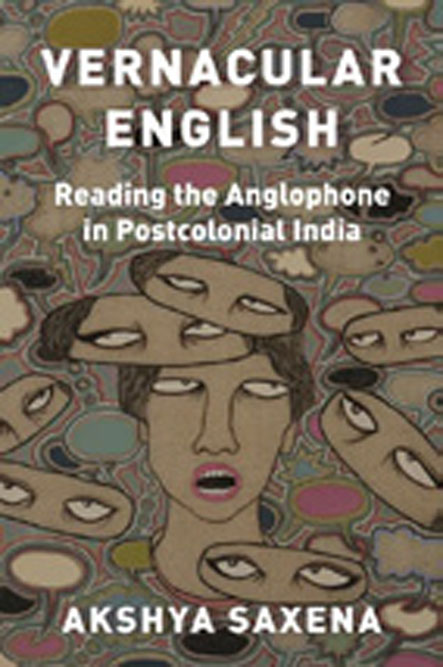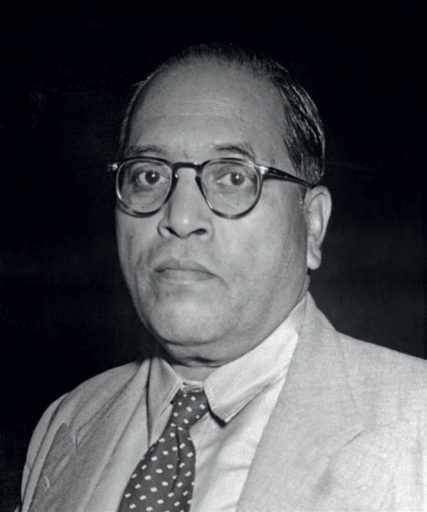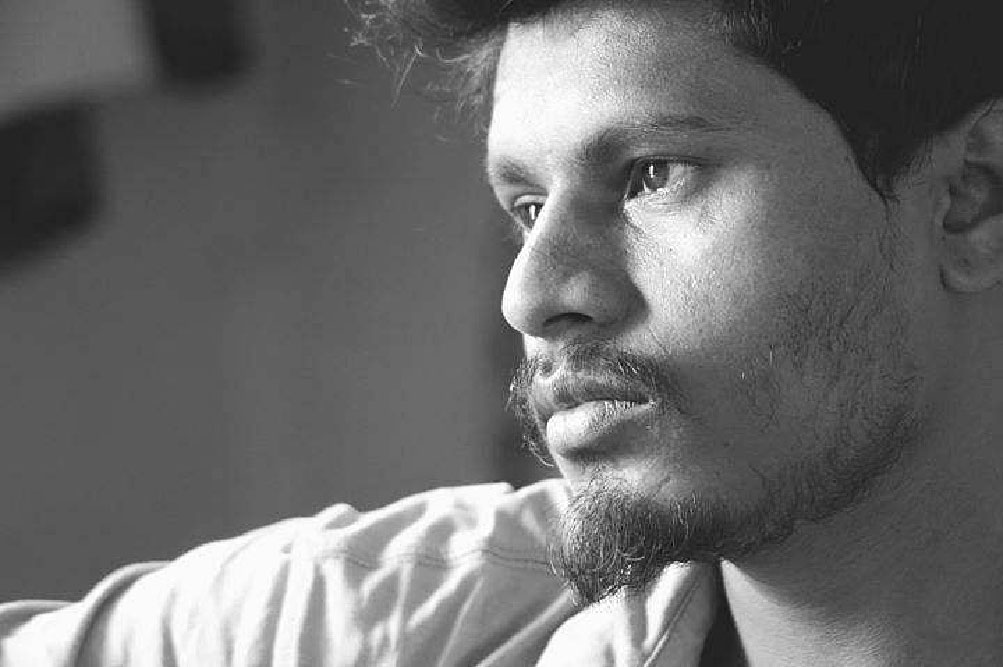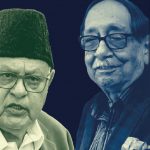Resistance Tongue
English has always been imagined as an ally of the Dalit struggle
 Akshya Saxena
Akshya Saxena
 Akshya Saxena
Akshya Saxena
 |
15 Jul, 2022
|
15 Jul, 2022

/wp-content/uploads/2022/07/Resistance1.jpg)
(Illustration: Saurabh Singh)
DALIT LEADERS AND ideologues—from 19th-century reformers like Jyotiba and Savitribai Phule to BR Ambedkar to contemporary figures like Chandra Bhan Prasad and Kancha Ilaiah Shepherd—have all written in the English language and advocated for it. Like Sanskrit and other Sanskritised languages, the English language is dominated by upper castes and is equally exclusive. However, in an important contrast, English is not as severely policed with ritualistic injunctions against speaking and learning.
As they insist on English against other Indian languages never mind how unequal its experience, these writers not only provide a tradition for contemporary Dalit writers but also conceptualise English as the language of touch. As professors Christi Merrill and Laura Brueck write, the English language has always been imagined as an ally of the Dalit struggle.
For example, writing in the early 19th century, Jyotiba Phule also sought in English a language of shared solidarities that could critique Brahminical supremacy and organise resistance to it. Savitribai Phule specifically referred to English as a mother figure in her poems. Among Phule’s many Marathi-language poems that praise the virtues of the English language is one titled ‘Mother English’ (1854). Here, Phule imagines that the English language destroys the caste system. She writes, “Rule of Peshwa is gone/ Mother English has come./ In such a dismal time of ours/ Come Mother English, this is your hour./ It is all for the good of the poor/ Manu’s dead at English Mother’s door./ Knowledge is poor man’s refuge and shade/It’s akin to comfort mother-made.” Knowledge, which is parsed as the knowledge of English, is the only asylum for the poor Dalits, because English protects like a mother.
The wide availability and reach of English shaped Bhim Rao Ambedkar’s conscious decision to write in English. His linguistic preference was in contrast to Mahatma Gandhi’s insistence on Indian languages, especially Hindustani. Because of his class and caste position, Gandhi enjoyed an ease of communication and did not have to struggle to be heard. The drafting of the Indian Constitution in both Hindi and English lends the document the linguistic authority of secularism, equality, and modernity. The adoption of English bolstered the place of English in India’s cultural and political imagination for time to come. No doubt the turn to English was the logical culmination of British rule, and parts of the Constitution of India quoted verbatim from the colonial Government of India Act of 1935. Yet both the Constitution of India and English—its “alien language”—were transformed into what historian Rohit De calls “talismans” to notionally and literally activate democratic citizenship and equality for millions across caste, class, and language differences.
The drafting committee of the Constitution was headed by Ambedkar who had used English to name the violence of casteism at the heart of Indian society and politics. Merrill and Brueck note that, in the decades leading up to independence in 1947, “Ambedkar wrote appeals aimed specifically to foreign readers, in such a way that called into question the elitism of the Congress Party, especially its claim to speak for all Indian subjects in demanding independence from British rule.” Ambedkar also wrote key autobiographical pieces in the English language. Waiting for a Visa (1935-36) is a collection of loosely tied first-person narratives about growing up Dalit in India. The act of writing autobiographically in a language like English is powerful because it imagines the Dalit subject outside of a caste-marked terrain, or a terrain of parity. The linguistic medium of English makes writing an act of bearing witness to suffering and of reclaiming agency and equality.

In contemporary times, activists Kancha Ilaiah Shepherd and Chandra Bhan Prasad have advocated for teaching English to Dalits and invoked Ambedkar and Phule as early proponents of the English language for the Dalits. Indeed, in 2010, Prasad built a temple for the English language. Holding on to the promise of Ambedkar’s Constitution, the internet, and global capitalism, he called it a Dalit Goddess. For them, as for many other Dalit writers, English literature refers also to a body of work by these foundational Dalit leaders as well as the Indian Constitution that guarantee a measure of equality. Itself unmarked by caste-based injunctions, the English language brings with it the promise of transgressing caste-based rules of decorum and forging transnational alliances of resistance.
Jyotiba Phule sought in English a language of shared solidarities that could critique Brahminical supremacy and organise resistance to it. Savitribai Phule specifically referred to English as a mother figure in her poems
Across India today, a new generation of Dalit English poets actively share their works on social media and in poetry readings. These poets belong to the post-Mandal generation of writers and started writing around the institutional murder of Rohith Vemula. In this context, they are already sensitive to the promise and failures of English and English education. Their works bring us to a world where the experience of the English language is unquestionably caste marked. At the same time, these Dalit writers are able to tell us something about the experience of writing English in a way that the non-Dalit writers are not. Their literary performances do not just challenge a caste-marked sense of the literary and the aesthetic but also of language itself.
CHANDRAMOHAN SATHYANATHAN and Yogesh Maitreya are two contemporary Dalit English poets who started writing on the internet. I asked them about their stance on the English language. They were not the first Dalits to write in English, they would tell me. Many Dalits knew the English language, Jyotiba Phule and Ambedkar wrote in English, Kancha Ilaiah Shepherd and Chandra Bhan Prasad were advocating for English for Dalits even as we spoke. Sometimes the answers were meaningfully matter of fact: because they can, because why not, because why should only savarna or caste Hindu writers write in English? One of the reasons they felt assured in their choice of English is because they saw it as the language of Ambedkar and Phule, and saw themselves as part of a long tradition of linguistic activism. Their writing and publishing in English is very much their response to Ambedkar’s call to “Agitate, Educate, Organise,” and a way to translate embodied experiences into literature. This insistence on English as a part of one’s tradition led to more pointed reflections on writing the poems in English.

For instance, Chandramohan Sathyanathan seizes English as a shared linguistic space where his shadow can defile notions of caste purity that mark the postcolonial state. In the poem, ‘On the Need of Common Language’ (2019), the poet compares the need to share a language to the need to inhabit the same time for “our shadows to intersect on public roads.” The caste system is based on injunctions against touch. Even the overlapping shadows of a Dalit with the savarna Hindu was enough to pollute him. In this context, the poet imagines that this haptic transgression will take place on a “public road”—the infrastructure of modern India much like the English language. In this landscape of total regulation and violence, writing in English becomes an act of self-defense: “Why do you write poetry?/ I write poetry—people have the right to bear arms.” The syntax of Sathyanathan’s sentence—with an em dash instead of a conjunction—renders dubious the fact that the poet’s act of writing is enabled by Constitutional provisions. The lyric address of the poem overturns the democratic address, and reclaims the act of Dalit writing as independent of any state intervention to authorise it.
BR Ambedkar wrote key autobiographical pieces in the English language. Waiting for a Visa (1935-36) is a collection of loosely tied first-person narratives about growing up Dalit in India
The idea of writing as self-defence also appears in the poetry of Yogesh Maitreya. Many of Maitreya’s poems establish an imperative to write in English. As a language that the poet shares with savarna Hindus, English has the potential to deeply affront that audience. Maitreya’s poem, ‘Learning to Speak in English’ (2017), elaborates on the draw of English. The act of learning is a reference to the moment of unknowing and wanting prior to writing in English. Learning English in India is learning an effective habitus of shame and hope. The poem itself is five terse lines that neither name the English language nor give us a brass tacks description of what it was like to learn it. What we get, instead, is a proclamation of rights: “Everybody has the right/ To defend himself/And if necessary, attack./ Hence, I write/ But not in my mother tongue.” The rights-based discourse insists on one’s right to English, the write to English, against the systemic denials of the English language. This very legal approach also brings to mind the Constitutional provision of English, where it guarantees linguistic and political representation to those marginalised by and in modern standard vernaculars. Maitreya considers Varhadi, a dialect of Marathi spoken in the Vidarbha region of Maharashtra, his mother tongue. Eschewing it, his decision to write in English is an act of self-defence, the importance of which is heightened by the following line break. Varhadi, of course, does not have the reach or visibility of English. Writing in English can bring a wider audience and register an unmistakable transgression and scandal. The poem utilises a common trope of resistance literature—the weaponisation of language, though, in this case, it is not so much to attack (“if necessary”) but in self-defence.
Yet, the experience of English is deep within a web of shame, risk, greed, and desire. The poem, ‘Dilemma’ (2017) specifically names the poet’s interest in writing (in English) as greed: “I grew up much greedy/ I wrote in English and kept on writing.” Usually, a discussion of greed launches a moral parable. However, here the poet’s self-identification as greedy is poignant, conveying an underlying sense of self-reproach, shame, and conflict. The poet imagines himself greedy because the English he pursues threatens his connection with a world without English. Poet Neerav Patel in his essay also feels wistful abdicating his mother tongue of Gujarati but reasons that he needs to do so to resist the hold of caste on his life. He writes, “Living as it does in the shadow of oppressors, how would that mother-tongue of mine know that they had cast a web of oppression and hidden it deftly in their language?” For both Patel and Maitreya, to write in English occasionally is a political act but to keep writing in it forges a more intimate relation with the language. By turning to English, the poet risks being distanced from those before and around him. As the poet later reveals, his covetousness and persistence distance him from the childhood world where his father sang with rage and love, and leave him wondering about the language in which he would sing to his future children. This personal risk is compounded with the economic risks in pursuing an unremunerative life of letters as a first-generation college student. The sense of greed that the poet anticipates, at once, critiques linguistic opportunism while also placing its finger on the reckless experience of an exclusive and exclusionary language in a casteist society.

How does the English language—a bastion of caste, class, and colonial supremacy—come to the defence of the Dalit subject? The language itself does not come to one’s defence. It is the physical and politically charged act of writing in it that arms one. For instance, in writing in English, Maitreya not only takes ownership of a language but also enters a hegemonic discourse that has excluded him. The pages of history have no mention of people like the poet. In his poem, ‘Recollecting an Old Self’ (2017), Maitreya writes that the only time someone spoke his grandfather’s name was when the man died. “When my grandfather died/ People said “Gariba Mahar is dead now.”/ That was the only time/His name was uttered by their tongues.” His poetry is an act of retrieving “history from the rubble” of his grandfather’s pyre. His words are gathered so that the poem can literally “give body” to the memory of his grandfather. Many of Maitreya’s poems centre figures from the Dalit struggle in the state of Maharashtra. In other poems, he stages familial and interpersonal experiences that highlight the way caste contains all life. His poems are shot through with images of the material artefacts of caste discrimination like the Brahmin’s sacred white thread, memories of a woman being soaped and washed before being raped, Dalit activists like Pochiram Kamble who died fighting Brahminical hegemony, as well as stories of farmer suicides due to crushing debt and lack of governmental support. The hyperlocality and immediacy of Maitreya’s poems places them in the tradition of much of Dalit writing that has borne witness to caste injustice through personal testimony. Writing in English gives body to the English language by appropriating it to tell a different history, to name a different people, and to create different traditions of solidarity. In their poetry, both Maitreya and Sathyanathan authoritatively cast the shadow of marginalised Dalit figures onto the casteless modernity of English.
Many of Yogesh Maitreya’s poems establish an imperative to write in English. Maitreya’s poem, ‘Learning to Speak in English’ (2017), elaborates on the draw of English
The emerging body of Dalit English writing is not troubled over the colonial provenance of the English language in India. By charging most powerfully the very possibility of writing, this body of writing, in fact, demands more from the English language in the nation. In political terms, English is first and foremost an instrument of Brahminical hegemony—the worthy but incomplete project of the British, the promise of Western European Enlightenment and global capitalism. As perhaps the only language in India without an originary caste-based injunction against who could or could not use it, English is full of promise. It promises dignity, modernity, and anonymity through an experience of language and subjectivity outside caste.
Between the hope and alienation, between resistance to and in English, Dalit English writers furnish a vernacular English that seizes the idealism of English and imbues it with the energy to resist Brahminical dominance. By writing in it, they produce a different kind of linguistic meaning from the body than the one imputed by caste. Caste injunctions against scripture, education, and literacy make the very act of writing by a Dalit subject in India radical. Centuries of caste system have entrenched hierarchies with rules about touchability/untouchability around learning, bodily conduct, food, and clothes. Historically, the knowledge of writing has been in the hands of the Brahmins, and what is valued as literary is itself determined by caste. In this context, the act of writing by a Dalit is always activism, an act of undoing caste as written on the body. The haptic act of writing transforms English from the administrative vernacular of abstract democracy to a language of transgressive and solidaristic touch.
(This is an edited excerpt from Akshya Saxena’s Vernacular English: Reading the Anglophone in Postcolonial India)

/wp-content/uploads/2025/07/Cover_Dalai-Lama.jpg)












More Columns
‘We build from scratch according to our clients’ requirements and that is the true sense of Make-in-India which we are trying to follow’ Moinak Mitra
Gukesh’s Win Over Carlsen Has the Fandom Spinning V Shoba
Mothers and Monsters Kaveree Bamzai